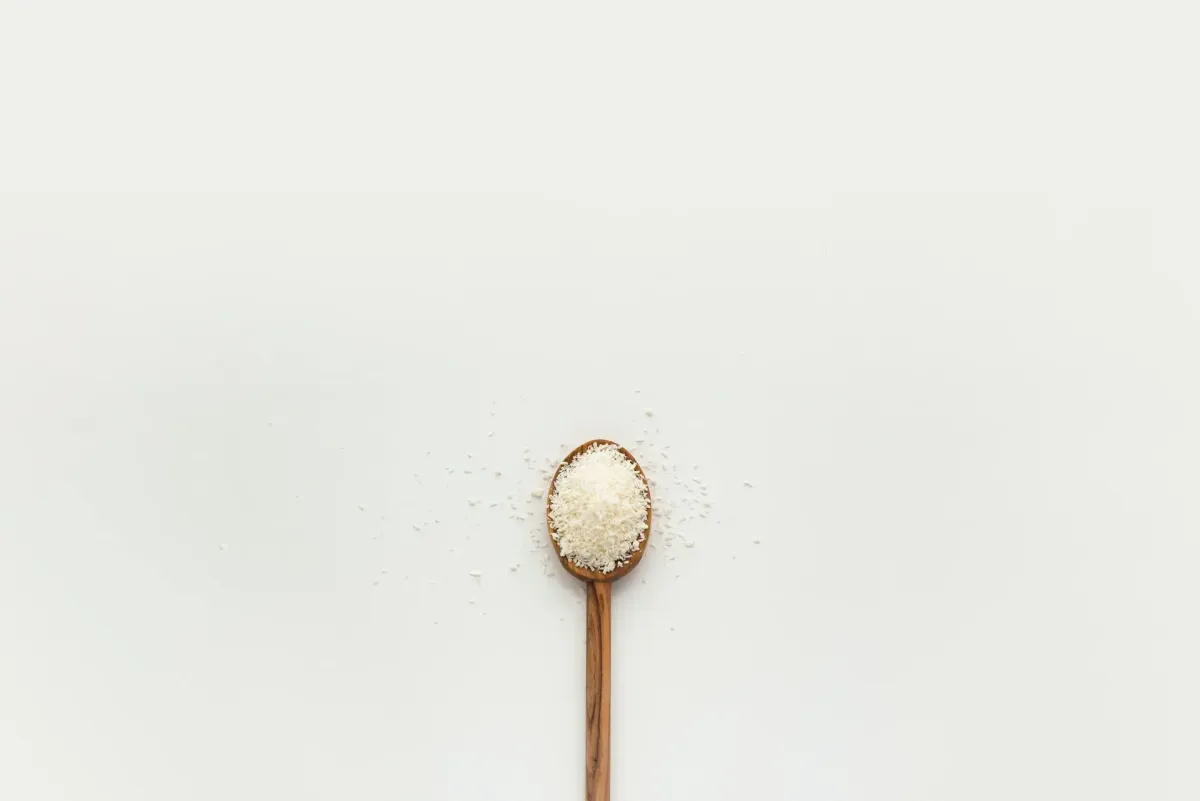READ UP ON THE LATEST HORMONE AND THYROID NEWS!

How iodine supports the thyroid
Iodine is a mineral that’s often associated with the thyroid, and for a good reason! It is essential for the production of thyroid hormones.
Specifically, iodine helps make thyroxine and triiodothyronine, two thyroid hormones that help create proteins, support enzyme activity, and regulate a normal metabolism. This hormone production happens when blood levels of TSH rise, signaling to the thyroid that it needs to use that iodine to make the proper hormones.
If you don’t have enough iodine in your body, then the thyroid can’t produce enough of these hormones. The thyroid will keep trying though, making it work really hard. This can cause the cells of the thyroid to grow, leading to an enlarged thyroid, also known as a goiter, and eventually to hypothyroidism.
How to get enough iodine
The Institute of Medicine recommends that adults get 150 μg (micrograms) of iodine per day to support a healthy thyroid. If you’re pregnant, the daily amount goes up to 220 μg. If you’re breastfeeding, it’s 290 μg. This is because thyroid hormone production is crucial in the development of babies and children.
However, the body doesn’t make iodine, which means it has to come from external sources. Some great sources of iodine include:
Seaweed (nori, kelp, kombu, wakame)
Fish, shellfish (cod, canned tuna, oysters, shrimp)
Table salts labeled “iodized”
Dairy (milk, cheese, yogurt)
Eggs
Beef liver
Chicken
Here are a few of the ways that I like to ensure I’m getting iodine in my diet:
Regularly eating organic chicken breast as my main protein source in a meal
Making breakfast tacos with eggs, salsa, avocado, and gluten-free tortillas
Adding ½ teaspoon of iodized table salt to a pot of soup or chili
Adding seaweed flakes to bowls and salads
Testing for iodine deficiency
While iodine levels can be tested in the blood or urine, these aren’t actually great measurements. These tests will show how much iodine is leaving the body, but not how much is currently in it.
With that, a Hair Tissue Mineral Analysis can check for iodine levels and other minerals that support iodine in thyroid hormone production. Aside from just looking for symptoms of hypothyroidism, this is the best way to check for iodine deficiencies.
The good news: here in the U.S., iodine deficiency is relatively rare, as it shows up in products that many of us consume regularly. However, the American Thyroid Association does state that there has been a slight increase in iodine deficiency in pregnant women. So if you’re currently pregnant or thinking of becoming pregnant, it could be worth talking to your doctor about your iodine levels.
Should you take an iodine supplement?
The short answer: probably not. Here’s why.
First, getting vitamins, minerals, and nutrients from whole foods is typically better than adding supplements to your diet, especially if those supplements aren’t recommended by your healthcare professional. As mentioned before, iodine deficiency is actually rare in the U.S., because most of us can get enough of it through our diets.
Next, too much iodine can also be really harmful. Excess iodine in the body can lead to hyperthyroidism or thyroid autoimmunity. These conditions can be really tough on the body.
Finally, if you are iodine deficient and increase your iodine intake too rapidly, this can also lead to a slew of health problems, also including hyperthyroidism.
Now, studies have shown that most people can tolerate an excess of iodine over the recommended daily limit. But the people who are at risk are those of us who already have thyroid conditions. If your thyroid isn’t functioning properly to being with, and then it’s shocked with a ton of iodine, it can make matters worse.
So, that’s everything you’ve wanted to know about how iodine supports the thyroid, and how to ensure you’re getting iodine in your diet. If you have any questions about other minerals and how they help the thyroid function, ask in the comment section!

How iodine supports the thyroid
Iodine is a mineral that’s often associated with the thyroid, and for a good reason! It is essential for the production of thyroid hormones.
Specifically, iodine helps make thyroxine and triiodothyronine, two thyroid hormones that help create proteins, support enzyme activity, and regulate a normal metabolism. This hormone production happens when blood levels of TSH rise, signaling to the thyroid that it needs to use that iodine to make the proper hormones.
If you don’t have enough iodine in your body, then the thyroid can’t produce enough of these hormones. The thyroid will keep trying though, making it work really hard. This can cause the cells of the thyroid to grow, leading to an enlarged thyroid, also known as a goiter, and eventually to hypothyroidism.
How to get enough iodine
The Institute of Medicine recommends that adults get 150 μg (micrograms) of iodine per day to support a healthy thyroid. If you’re pregnant, the daily amount goes up to 220 μg. If you’re breastfeeding, it’s 290 μg. This is because thyroid hormone production is crucial in the development of babies and children.
However, the body doesn’t make iodine, which means it has to come from external sources. Some great sources of iodine include:
Seaweed (nori, kelp, kombu, wakame)
Fish, shellfish (cod, canned tuna, oysters, shrimp)
Table salts labeled “iodized”
Dairy (milk, cheese, yogurt)
Eggs
Beef liver
Chicken
Here are a few of the ways that I like to ensure I’m getting iodine in my diet:
Regularly eating organic chicken breast as my main protein source in a meal
Making breakfast tacos with eggs, salsa, avocado, and gluten-free tortillas
Adding ½ teaspoon of iodized table salt to a pot of soup or chili
Adding seaweed flakes to bowls and salads
Testing for iodine deficiency
While iodine levels can be tested in the blood or urine, these aren’t actually great measurements. These tests will show how much iodine is leaving the body, but not how much is currently in it.
With that, a Hair Tissue Mineral Analysis can check for iodine levels and other minerals that support iodine in thyroid hormone production. Aside from just looking for symptoms of hypothyroidism, this is the best way to check for iodine deficiencies.
The good news: here in the U.S., iodine deficiency is relatively rare, as it shows up in products that many of us consume regularly. However, the American Thyroid Association does state that there has been a slight increase in iodine deficiency in pregnant women. So if you’re currently pregnant or thinking of becoming pregnant, it could be worth talking to your doctor about your iodine levels.
Should you take an iodine supplement?
The short answer: probably not. Here’s why.
First, getting vitamins, minerals, and nutrients from whole foods is typically better than adding supplements to your diet, especially if those supplements aren’t recommended by your healthcare professional. As mentioned before, iodine deficiency is actually rare in the U.S., because most of us can get enough of it through our diets.
Next, too much iodine can also be really harmful. Excess iodine in the body can lead to hyperthyroidism or thyroid autoimmunity. These conditions can be really tough on the body.
Finally, if you are iodine deficient and increase your iodine intake too rapidly, this can also lead to a slew of health problems, also including hyperthyroidism.
Now, studies have shown that most people can tolerate an excess of iodine over the recommended daily limit. But the people who are at risk are those of us who already have thyroid conditions. If your thyroid isn’t functioning properly to being with, and then it’s shocked with a ton of iodine, it can make matters worse.
So, that’s everything you’ve wanted to know about how iodine supports the thyroid, and how to ensure you’re getting iodine in your diet. If you have any questions about other minerals and how they help the thyroid function, ask in the comment section!

CALL US TODAY! (314) 226-3137
Content, including images, displayed on this website is protected by copyright laws. Downloading, republication, retransmission or reproduction of content on this website.

